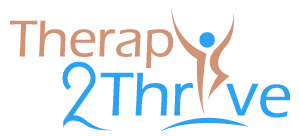Mental Health
Therapy2Thrive® Pleasanton
925-998-3392
The Importance of Mental Health as Adolescents Transition into Young Adulthood
From the life stages perspective, adolescence is considered as a critical link between infancy, childhood and adulthood, especially in late adolescence (14yrs.-19 yrs.) or the “transition phase”. This stage is associated with significant physical, psychological, and social transitions which require unconditional love and care, guidance, empathetic understanding, and support from parents and caregivers in order for these teens to successfully overcome life stressors.
Late adolescence or the transition period provides an opportunity for youth to explore, learn, and grow as healthy young adults. That requires learning four key life skills: (1) individuation, (2) separation, (3) autonomy, and (4) cooperation. However, this stage can be very difficult and may pose increased risks for life-long biopsychosocial challenges if youth do not get proper support, care, guidance, and safe environments to grow.

This especially applies to at-risk youth, African Americans, LGBTQIA, the homeless, or youth living under the juvenile justice system. Marginalized adolescents are least likely to be provided the supportive care they need. Many are vulnerable to mental health issues and may suffer symptoms. Adolescents with acute childhood experiences (ACE’s) are susceptible to the effects of trauma. Trauma can cause behaviors and coping skills that may cause harm to the youth from substance use disorders to self harm as a result of depression and anxiety disorders.
It has been observed that adolescents experiencing homelessness or discrimination have higher rates of mental health issues in comparison to those living with stable family or caregivers. These at-risk youth often live in a hyper aroused state that causes flight, fight, freeze and/or collapse in response to trauma triggers. Their daily battle for survival exposes them to multiple threats at a time, such as a lack of adequate shelter and food, substance use, emotional, physical, and sexual exploitation etc.
Depression, anxiety, anger, and post-traumatic stress disorder were observed as the most common concerns recognized in at-risk youth by mental health professionals. Severe mental disorders, complex trauma along with addiction, and self harm were identified as significant issues for the youth who belong to at-risk or vulnerable populations.
Therefore, it is recommended that parents, and caregivers, should apply supportive approach:
- If you have concerns about your adolescent, assist them in accessing a mental healthcare professional.
- If you cannot find a mental health care professional in your area, seeking treatment with a primary care provider is a good place to start.
- Provide unconditional support and care.
- Be empathic and non judgmental.
- Through supporting your teen you increase awareness and break the stigma of seeking mental health treatment.
References
Milburn, N. G., Batterham, P., Ayala, G., Rice, E., Solorio, R., Desmond, K., Lord, L., Iribarren, J., & Rotheram-Borus, M. J. (2010). Discrimination and Mental Health Problems Among Homeless Minority Young People. Public Health Reports, 125(1), 61–67. https://www.ncbi.nlm.nih.gov/pmc/articles/PMC2789817/
PeopleLife. (2021, April 19). What is the main goal of adolescence? Flashmode Magazine | Magazine de Mode et Style de Vie Numéro Un En Tunisie et Au Maghreb. https://flashmode.tn/magazine/what-is-the-main-goal-of-adolescence/
Therapy2Thrive™ brings Hope for Healing
Our counselors at Therapy2Thrive™ provide compassionate, practical, and evidenced based practices to assist you in the therapeutic process to meet your goals and find hope to heal the challenges you are facing.
Contact our family counselor in Pleasanton for private consultation.
